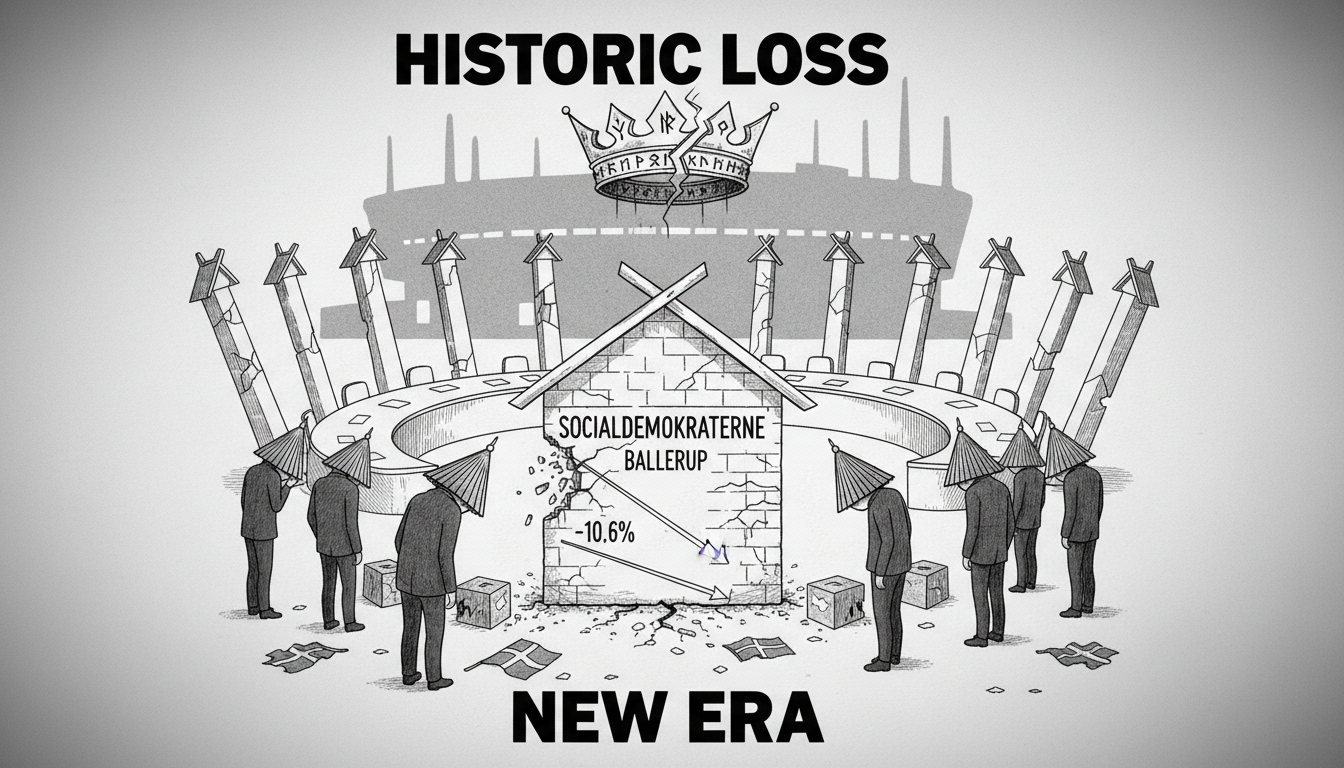The Social Democratic Party has lost its absolute majority in Ballerup Municipality for the first time in 35 years. Election results show the party received 40.2 percent of votes. This represents a substantial decline of 10.6 percentage points compared to the previous municipal election.
The Social Democrats have maintained a dominant position in Ballerup politics for generations. The party has held the mayor's office continuously since 1933. Only four individuals have served as mayor since 1952. Current mayor Jesper Würtzen has occupied the position since 2012.
Würtzen acknowledged the electoral setback in a public statement. "The Social Democrats have declined across the country, and we see that in Ballerup too," he said. "Now we must see if anyone wants to move Ballerup in a red-green direction together with us."
The sitting mayor declined to specify potential coalition partners. He also avoided predicting who would become the next mayor of the municipality.
Social Democrats and the Socialist People's Party have maintained close cooperation in Ballerup for many years. However, this election cycle brought unexpected competition. Simon Knudstrup, the SF group chairman, declared himself as a candidate for mayor before the municipal and regional elections. His goal was to create an alternative majority on the municipal council and take the mayor's office from Würtzen.
The election results create a complex political landscape. Social Democrats secured 10 seats on the 25-member municipal council. Achieving a majority requires 13 seats. The Socialist People's Party emerged as the second-largest party with 11.9 percent of votes. This translates to 3 seats, matching the Danish People's Party's representation.
This political shift reflects broader trends in Danish municipal politics. Traditional strongholds are becoming increasingly competitive. Voter preferences are fragmenting across multiple parties. The decline represents one of the most substantial electoral setbacks for Social Democrats in Ballerup's modern history.
The outcome suggests changing voter priorities in suburban municipalities. Ballerup residents appear to be seeking new political directions. The results may indicate dissatisfaction with established leadership approaches. Coalition negotiations will determine the municipality's future governance structure.
International observers should note this development signals potential political realignment in Denmark's municipal landscape. The loss of such a longstanding stronghold suggests shifting voter loyalties. This could influence political strategies ahead of national elections. The Ballerup results may prompt other parties to challenge traditional Social Democratic territories.
What happens next depends on complex negotiations between multiple parties. The Social Democrats must decide whether to seek centrist or left-leaning partnerships. Other parties will weigh their options carefully. The final coalition could shape Ballerup's policies on housing, education, and local services for years to come.

